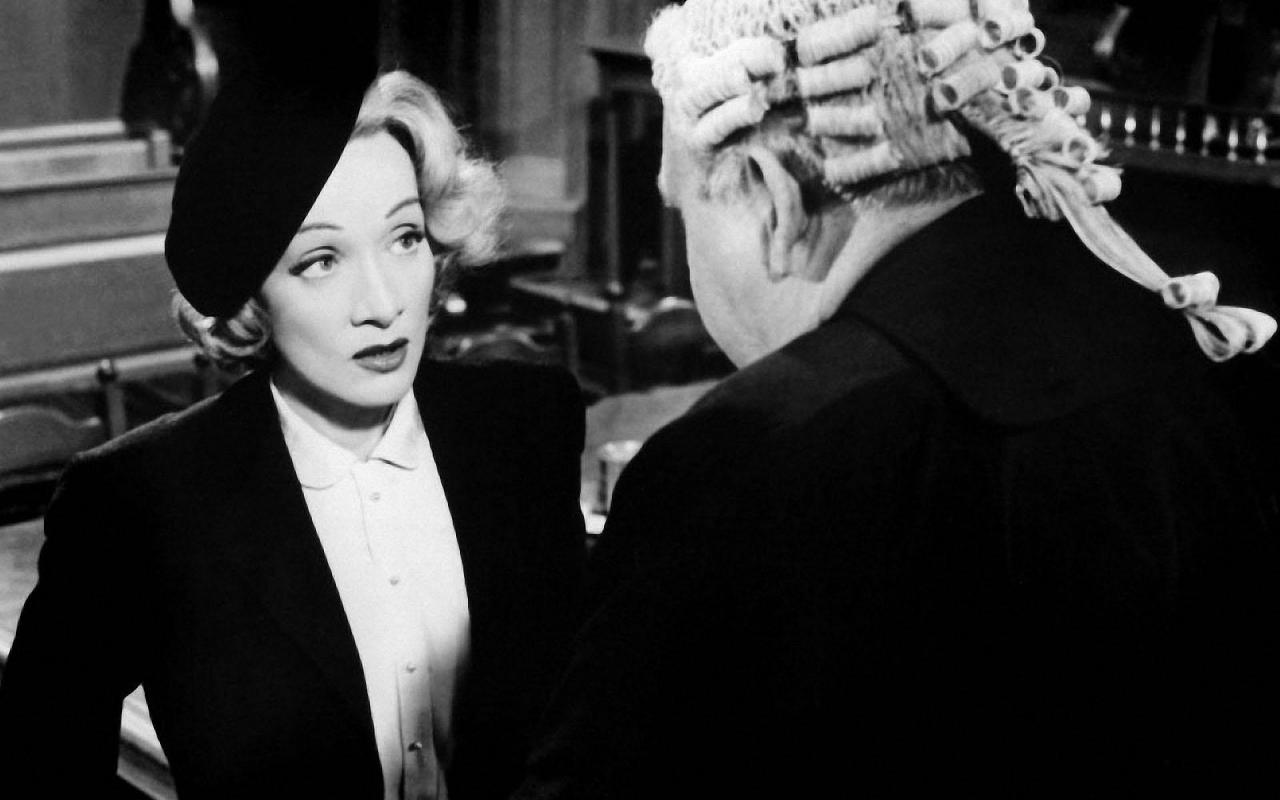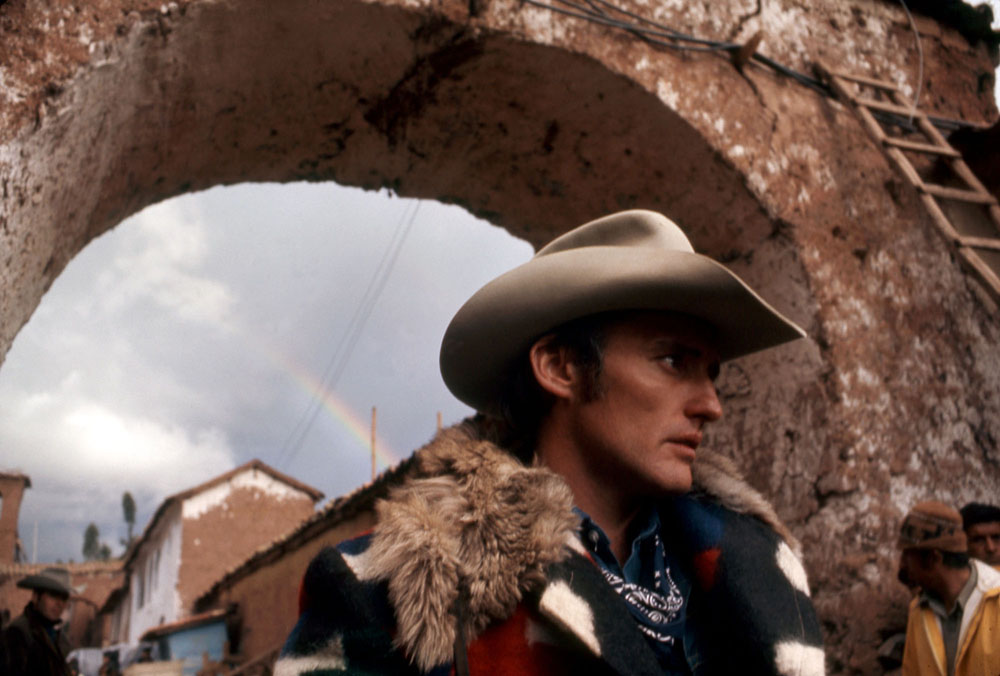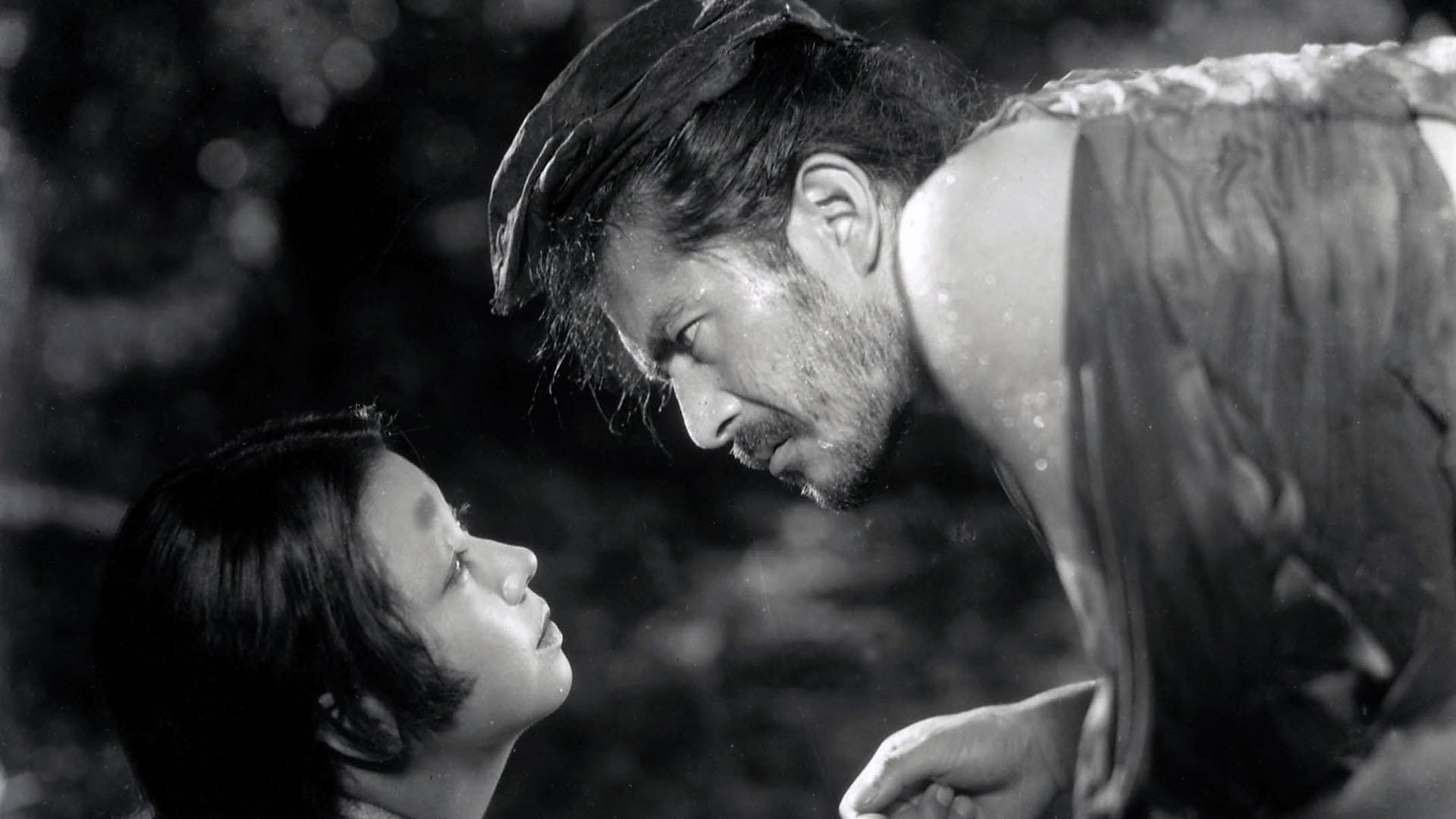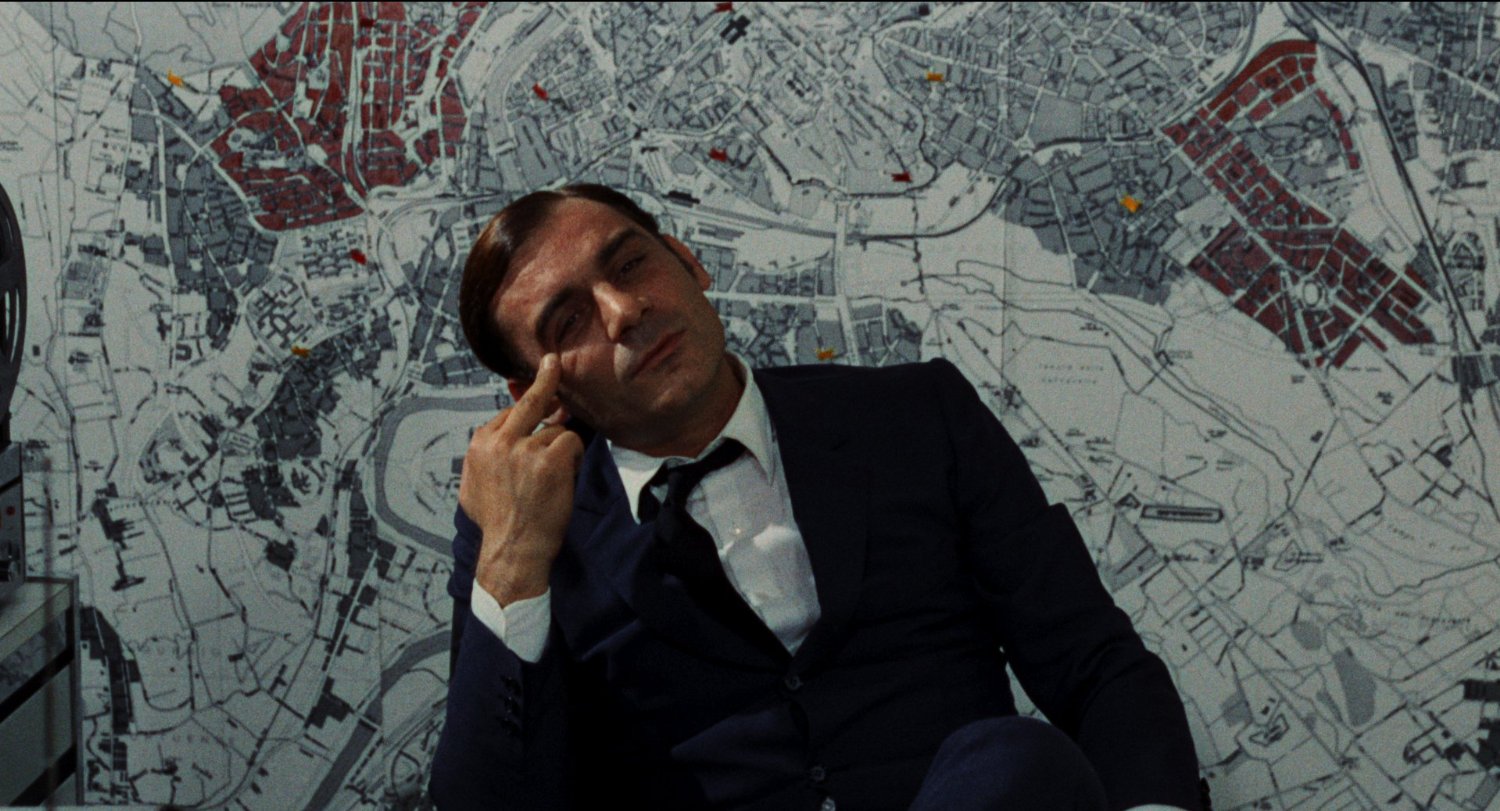5. Witness for the Prosecution (1957)

Based on Agatha Christie’s stage play of the same name, “Witness for the Prosecution” is a suspenseful courtroom thriller with a powerful cast (Tyrone Power, Marlene Dietrich and Charles Laughton) and exceptional direction. This Hitchcockian-like thriller is one of the movies Billy Wilder’s filmography (“Sunset Boulevard”, “The Apartment”).
The film focuses on the story of Leonard Vole (Tyrone Power) who has been accused for the murder of the wealthy widow Ms. Emily French so as to inherit a large amount of money. Leonard Vole, who is a war veteran and is married to Christine (Marlene Dietrich), asks for the help of Sir Wilfrid Robarts (Charles Laughton), a brilliant barrister with health problems. Despite the fact that there is considerable evidence of his guilt, Sir Wilfrid Robarts firmly believes that Leonard Vole is innocent. Sir Wilfrid Robarts not only has to prove that Vole is innocent, but also to deal with the fact that Vole’s wife Christine is about to testify as a witness for the prosecution.
The legendary Billy Wilder creates one of the best courtroom dramas of all time. It is a rollercoaster of emotions, a powerful movie with compelling performances, great plot twists and gorgeous black and white photography.
On the other hand, “Witness for the Prosecution” is a close examination of the nature of truth. The film depicts how the truth can be manipulated through deception and lies.
All in all, “Witness for the Prosecution” is one of the best adaptations of Agatha Christie’s works as well as a masterpiece of Billy Wilder filmography.
4. The Last Movie (1971)

“If you tell the truth, you don’t have to remember anything.” – Mark Twain
“The Last Movie” is a triumph of the American cult cinema. Lost for many years, this hidden gem is Dennis Hopper’s critique of the Western cinema and the methods of Hollywood. It is not only a movie about authenticity and realism, but also a meditation on the nature of truth.
This unconventional movie follows the story of an American stuntman (Dennis Hopper) who is working in a Samuel Fuller movie production in Peru. Kansas spends most of his time drinking, gambling or going out with local women. When the movie production is finished, he is forced by some locals to take part in a fake film called “The Last Movie”. However, the locals, who use fireworks and sticks as camera equipment, believe in real violence. Kansas has to not only find a way to save his life from this delusional people, but also escape from this mad reality.
Overshadowed by Dennis Hopper hypnotic masterpiece “Easy Rider”, “The Last Movie” is a jewel of cult cinema. The great Dennis Hopper manages to create not only a fictional film within a real film, but also a unique cinematic world. If truth is what you believe, then you have to believe what is true.
To sum up, “The Last Movie” is a hypnotic tale of deception, betrayal and corruption. This hidden gem will definitely be a pleasant surprise for those who love cult cinema.
3. Rashomon (1950)

Directed by the masterful Japanese filmmaker Akira Kurosawa, “Rashomon” is a powerful drama known for its unconventional narrative structure and symbolism. This is a journey through the abyss of the human soul as well as a deep exploration for truth.
Set in the 18th century Japan, “Rashomon” follows the story of the brutal rape of a bride and the murder of her samurai husband. This tragic event is told from the different viewpoints of a bandit, a woodcutter, the bride and the ghost of her deceased husband. Each character provides an alternative and subjective version of what really happened.
It goes without saying, that the Japanese director has managed to create a unique tale about the nature of truth. The film depicts that the truth is a matter of perspective, and the fact that there is no objective truth. It is obviously a personal journey through the perspective of Kurosawa’s camera in search of truth.
The film also introduces the “Rashomon effect”, a term that is related to the unreliability of human memory and contradictory interpretations of the same story.
Despite the fact that “Rashomon” is a complex movie with philosophical subtext, it is also an entertaining samurai story with sensational performances. Specifically, Toshiro Mifune delivers a spellbinding performance as the notorious bandit Tajomaru.
Taking everything into account, “Rashomon” is a masterpiece of Kurosawa’s filmography as well as triumph of the Japanese cinema.
2. Secret & Lies (1996)

Mike Leigh’s “Secret & Lies” is a heartbreaking melodrama about family secrets and personal redemption. It is not only an academic study of human behaviour, but also a realistic portrait of a dysfunctional British family.
To be more specific, the film tells the story of Hortense Cumberbatch (Marianne Jean-Baptiste) a successful black optometrist living in London, who was adopted as a child. Following the death of her adoptive mother, Hortense decides to find out the identity of her birth mother. When she learns that her biological mother is Cynthia Purley (Brenda Blethyn), a white working-class woman, she decides to visits her.
Cynthia, who lives in a small house with her daughter Roxanne (Claire Rushbrook), is an uneducated woman at a midlife crisis. She also has a younger brother Maurice (Timothy Spall), who is married to Monica (Phyllis Logan). When they all get together to celebrate Roxanne’s birthday, everything goes out of hand.
It is quite obvious that the great British filmmaker has created a realistic depiction of a disintegrating family. They are not only trying to hide their own secret, but also living miserably under the illusion of false happiness. However when their hidden secrets are exposed, they find out the true meaning of life.
Moreover, “Secret & Lies” is an emotionally demanding film with breathtaking performances. Brenda Blethyn not only received the Best Actress Award at Cannes, but also earned an Oscar nomination for the Best Actress in a Leading Role. In addition, Marianne Jean-Baptiste delivers a sensational performance receiving another Oscar nomination.
Overall, “Secrets & Lies” is a powerful melodrama that will definitely stay with you for a while.
1. Investigation of a Citizen Above Suspicion (1970)

Directed by Elio Petri, “Investigation of a Citizen Above Suspicion” is a masterpiece of the Italian cinema that won the Best Foreign Language Academy Award in 1971. It is a surrealist depiction of police brutality and abuse of power. Gian Maria Volontè stars as a fascist police inspector, who kills his mistress in order to prove that he is a citizen “above suspicion” and beyond Law.
He not only believes that he is untouchable, but also intentionally leaves a lot of clues incriminating himself. Being an arrogant and hypocrite man, he has also to deal with some communist protesters that are a threat of the government. Although he is a servant of the Law, he believes that there is no real justice.
This extraordinary kafkaesque satire on law enforcement is also a great character study. It is a deep examination of a Machiavellian character who seems more like an anti-hero or even an evil protagonist. Furthermore, he believes that he is the Law as well as that everyone should respect and fear him. It is a marvellous portrait of a violent and fearsome police inspector who desperately wants to prove that justice is a utopia.
This intense crime-drama stands out as a psychological and philosophical study of abuse of power, political correctness and justice. Not only a critique of authoritarianism and fascism, but also a satirical depiction of a genuinely powerful character.
To sum up, it is quite obvious that “Investigation of a Citizen Above Suspicion” is a unique and unforgettable gem of the Italian cinema.